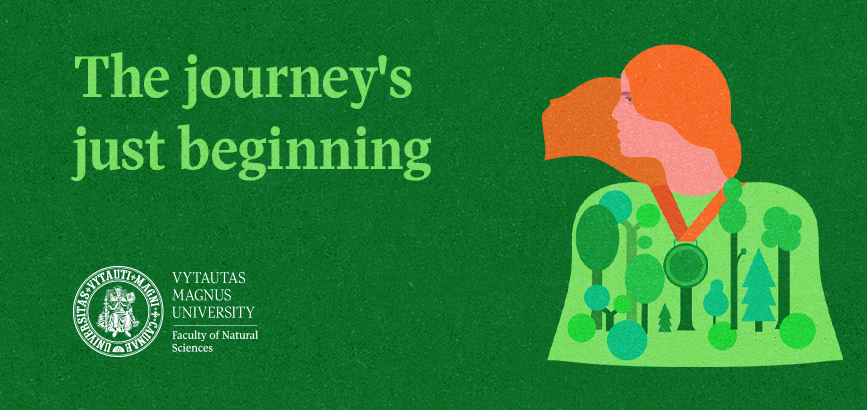Contact with Nature during Childhood could Lead to Better Mental Health in Adulthood

Almost 3,600 people participated in a European study on the impact of green and blue spaces on mental health and vitality
Barcelona, May 22, 2019-. Adults who had close contact with natural spaces during their childhood could have a better mental health than those who had less contact, according to a new study by the Barcelona Institute for Global Health (ISGlobal), an institution supported by ”la Caixa”, involving studies of four European cities scientists, among them Vytautas Magnus University (VDU), Kaunas, Lithuania, group.
Exposure to natural outdoor environments has been associated with several health benefits, including a better cognitive development and better mental and physical health. However, few studies have explored the impact of childhood exposure to natural environments on mental health and vitality in adulthood. Furthermore, studies have more frequently considered green spaces (gardens, forests, urban parks) than blue spaces (canals, ponds, creeks, rivers, lakes, beaches, etc.).
This study, published in the International Journal of Environment Research and Public Health, was performed within the framework of the PHENOTYPE project with data from almost 3,600 adults from Barcelona (Spain), Doetinchem (Netherlands), Kaunas (Lithuania) and Stoke-on-Trent (United Kingdom).
The adult participants answered a questionnaire on frequency of use of natural spaces during childhood, including purposeful –e.g. hiking in natural parks– and non-purposeful –e.g. playing in the backyard– visits. They were also asked about their current amount, use and satisfaction with residential natural spaces, as well as the importance they give to such spaces. The mental health of the participants in terms of nervousness and feelings of depression in the past four weeks, as well as their vitality –energy and fatigue levels– were assessed through a psychological test. The residential surrounding greenness during adulthood was determined through satellite images.
The results show that adults who were less exposed to natural spaces during their childhood had lower scores in mental health tests, compared to those with higher exposure. Myriam Preuss, first author of the study, explains that “in general, participants with lower childhood exposure to nature gave a lower importance to natural environments”. No association was found between childhood exposure and vitality, or the use of or satisfaction with these spaces in adulthood.
Wilma Zijlema, ISGlobal researcher and study coordinator, underlines that the conclusions “show the importance of childhood exposure to natural spaces for the development of a nature-appreciating attitude and a healthy psychological state in adulthood”. Currently, 73% of Europe’s population lives in urban areas with often limited access to green space and this number is expected to increase to over 80% by 2050. “Therefore, it is important to recognize the implications of growing in up in environments with limited opportunities for exposure to nature”, she adds.
“Many children in Europe lead an indoors lifestyle, so it would be desirable to make natural outdoor environments available, attractive and safe for them to play in”, explains Mark Nieuwenhuijsen, director of ISGlobal’s Urban Planning, Environment and Health Initiative. In most countries, activities in nature are not a regular part of the school’s curriculum. “We make a call on policymakers to improve availability of natural spaces for children and green school yards”, he adds.
Reference
Myriam Preuss, Mark Nieuwenhuijsen, Sandra Márquez, Marta Cirach, Payam Dadvand, Margarita Triguero-Mas, Christopher Gidlow, Regina Grazuleviciene, Hanneke Kruize y Wilma Zijlema. Low Childhood Nature Exposure is Associated with Worse Mental Health in Adulthood. International Journal of Environment Research and Public Health.
About ISGlobal
The Barcelona Institute for Global Health, ISGlobal, is the fruit of an innovative alliance between ”la Caixa” and academic and government institutions to contribute to the efforts undertaken by the international community to address the challenges in global health. ISGlobal is a consolidated hub of excellence in research that has grown out of work first started in the world of health care by the Hospital Clínic and the Parc de Salut MAR and in the academic sphere by the University of Barcelona and Pompeu Fabra University. The pivotal mechanism of its work model is the transfer of knowledge generated by scientific research to practice, a task undertaken by the institute’s Education and Policy and Global Development departments. ISGlobal a member of the CERCA programme of the Generalitat de Catalunya.












